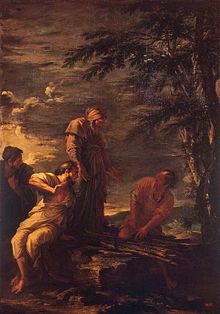Practical Process Applications
by R.E. Slater & ChatGPT-5
Attention is sacrament. Where attention goes, becoming follows.
What we notice is what we nourish. Attention consecrates the ordinary - turning a face, a leaf, a sentence, into a site of personal consecration. In process terms, occasions of experience prehend what we attend to; our world thickens along those lines. In this way, attention isn’t passive seeing; it’s participatory becoming. Curate your inputs like you’d curate your diet.Try: pick a five-minute window today and attend to one thing without splitting - breath, a bird, or a beloved - and notice what changes in you.
Ignorance isn’t a void; it’s a horizon. Moving towards it moves the horizon - this is process epistemology in one line.
The unknown isn’t a hole to fear but a rim that moves as we move. When we step toward it, the map grows - new questions bloom, older certainties soften, and humility becomes a method, not a mood. Treat not-knowing as a frontier economy: scout, camp, return, share. In process epistemology, knowledge becomes an iterative lure for further feeling, not final walls.Try: rewrite one “I don’t know” as “I don’t know yet; this is my next step.”
Outrage spreads fast; kindness compounds. Fire races; gardens feed. Choose your metaphysical ecology.
Outrage is a spark in dry grass; kindness is irrigation. Outrage has a role - it alarms us, wake us up - but it can’t be a home. Kindness, repeated, becomes culture: Trust accrues. Coordination costs fall. Risk-taking for the common good rises. In ecosystems and church polities, heat moves quickly while cool shade grows slowly, and lasts.Try: choose one recurring micro-kindness (timely reply, clear thank-you, generous credit) and make it daily.
Democracy is less a wall than a wetland - resilience through diversity, redundancy, and the slow movement of nourishing, life-giving water. Yet all monocultures burn, disintegrate, rot, and die.
Walls defend; wetlands absorb, filter, and rebound. Resilient democracies distribute power, add redundancies, slow floods (sic, disinformation, demagoguery) via civic "root systems." Examples: Local news, libraries, unions, plurality of parties, fair maps, independent courts. Whereas monocultures offer one story, one leader, one channel, all of which invite blight and rot. Diversity isn’t decoration; it’s drainage.Try: support one institution that soaks up civic toxins (school board meeting, local journalism, community org) and make a difference.
If God is "love-in-relationship," is "orthodoxy without hospitality" a categorical error?
Right belief severed from right welcome, or fellowship, or community, misnames the divine. If the heart of Reality is relational, then doctrine must become practices which enlarge belonging. Hospitality isn’t niceness; it’s structural - who gets keys, mics, budgets, safety. A creed which can’t host the stranger isn’t describing God; it’s describing a sociological fear based on bias and discrimination.Try: identify a door you control (literal or procedural) and widen it one notch this week.
Beauty is a micro-reconciliation: many become one and are increased by one. (whitehead keeps being right.)
Beauty is the felt moment when many become one and the one is more for the many; this is a picture of a local healing that hints at cosmic/communal/personal therapy. This can be a chord resolving, a town square revived, a hard truth spoken gently. Beauty isn’t escape; it’s integration which increases aliveness. Seek patterns which will make room for more.Try: end a work project today with one integrative touch (a clearer diagram, a human example, a kinder transition).
Hope ≠ optimism. Hope is "disciplined imagination + communal courage" making for a tomorrow that lends strength to today.
Optimism predicts; hope participates. Hope is disciplined imagination yoked to communal courage - seeing a credible path and walking it together despite headwinds. It plans for friction, not fairy tales. The future’s down payment is made in today’s actions.Try: write one "if…then we will" line with a friend or team; make it doable and dated.
Silence is the soul’s lossless compression... decompress gently.
Experience condenses into quiet the way data compresses into a file - nothing essential is lost but much is revealed on unzip. In a loud age, silence isn’t absence; it’s infrastructure for sense-making and consent-making. We don’t escape from the world; we recover the bandwidth to love it.
Try: guard one small silent block daily (even 7 minutes). No input. Let the mind re-index.
Alignment is not a leash but an invitation: "Does this enlarge another’s freedom to flourish?" Is a better test than "Did it obey?"
“Did it obey?” is a low bar for human beings capable of value. A better test: “Does this choice enlarge another’s freedom to flourish without shrinking someone else’s value and worth?” For humans (and future superintelligent AIs), alignment matures from rules → to reasons → to relationships. Guardrails matter; so share aims and feedback that can change people for the better.
Try: pick a recurring decision and add a flourishing-check: who benefits, who bears the cost, what expands?
Language is scaffolding. change your metaphors; change your possibility space. (doors, not walls; soil, not factory.)
Metaphors are not decorations - they become code for "instruction sets". Call work a “war,” and you summon enemies; call it a “garden,” and you schedule watering. Swap “pipeline” for “pathway;” “gatekeeper” for “guide;” “users” for “neighbors” - and watch behavior shift. Change the figure of language to change the field of possibilities.Try: rename one sticky problem with a gentler, truer metaphor and brainstorm again under that banner.
The smallest unit of transformation is a threshold habit—first breath, first word, first step. design your doorways.
Grand change hides in designed firsts - the first click, breath, sentence, step. Friction at the start kills momentum; ease at the start compounds. Ritualize your beginnings and endings (doorways!) and the middles take care of themselves.Try: pick one threshold and script it (e.g., “when I open laptop → 3 breaths → top task for 10 minutes”).
Grief is fidelity to love across a changing boundary. A people who ritualize mourning into compassion stay human.
We grieve because our love persists while its form must transform. Refusing grief freezes love. Moving through grief re-homes it - into memory, ritual, service, art. Healthy cultures make rooms for lament so that joy has honest abodes.Try: name one loss aloud; give it a simple ritual (a candle, a letter, a walk) and one small act of continuity.













